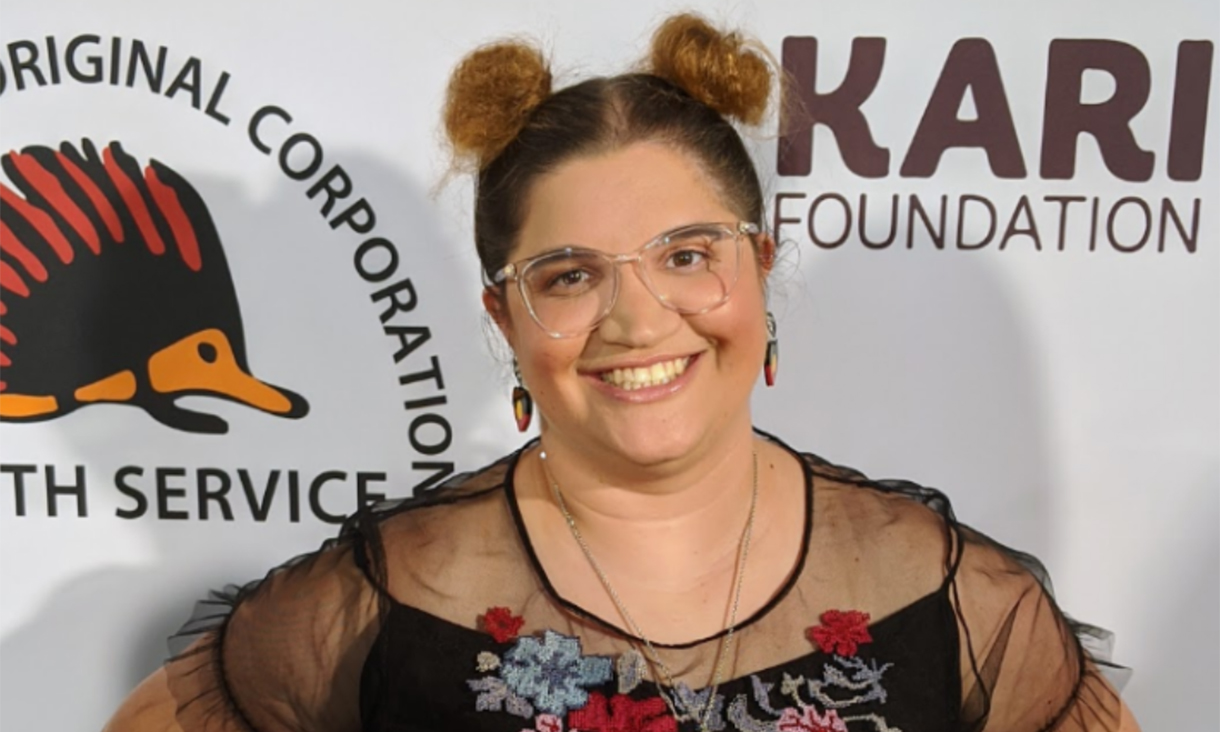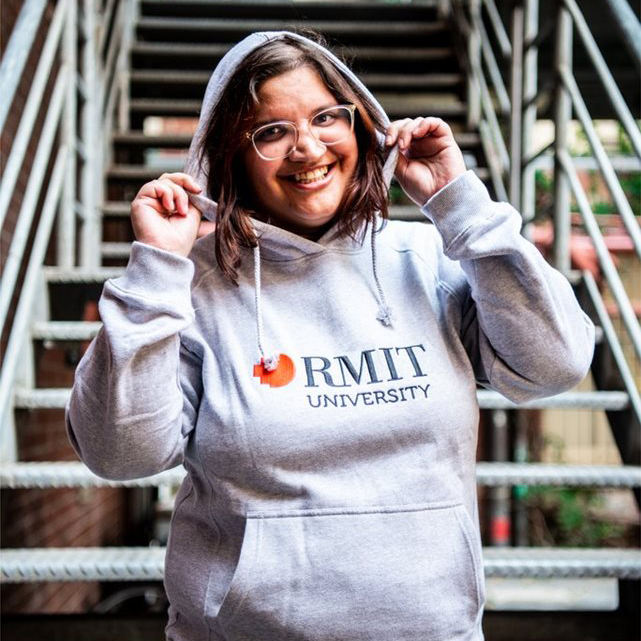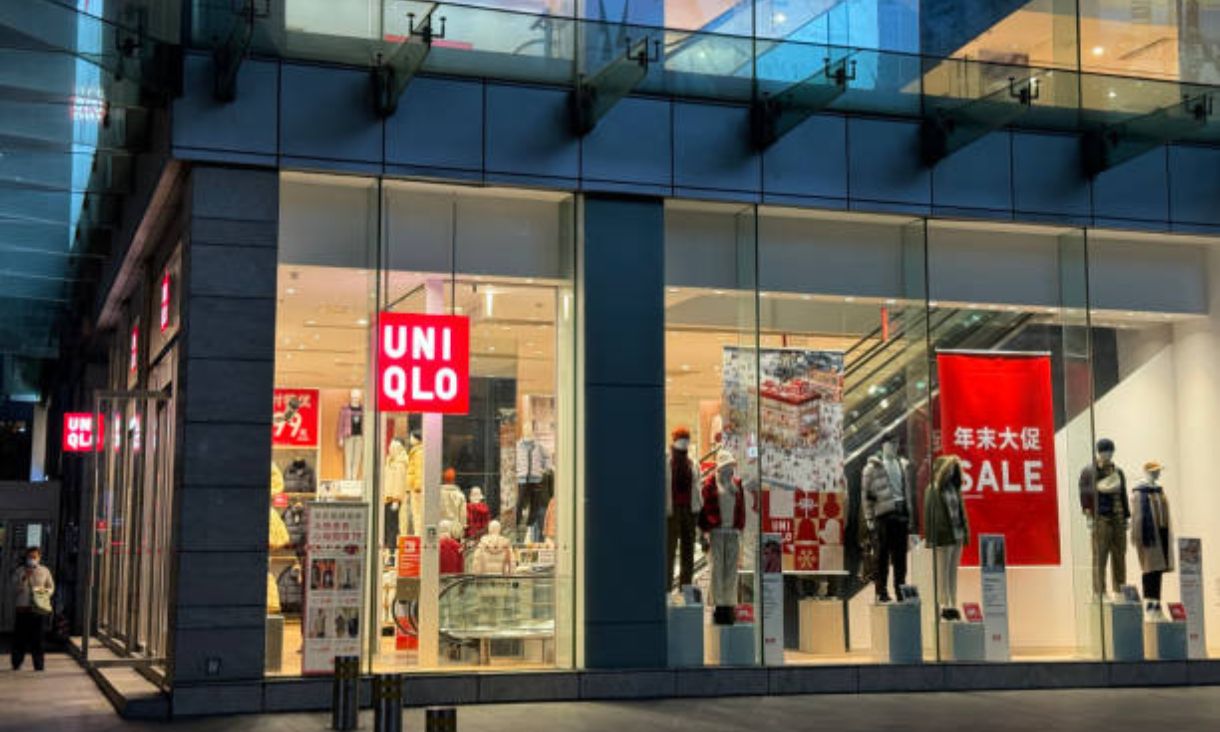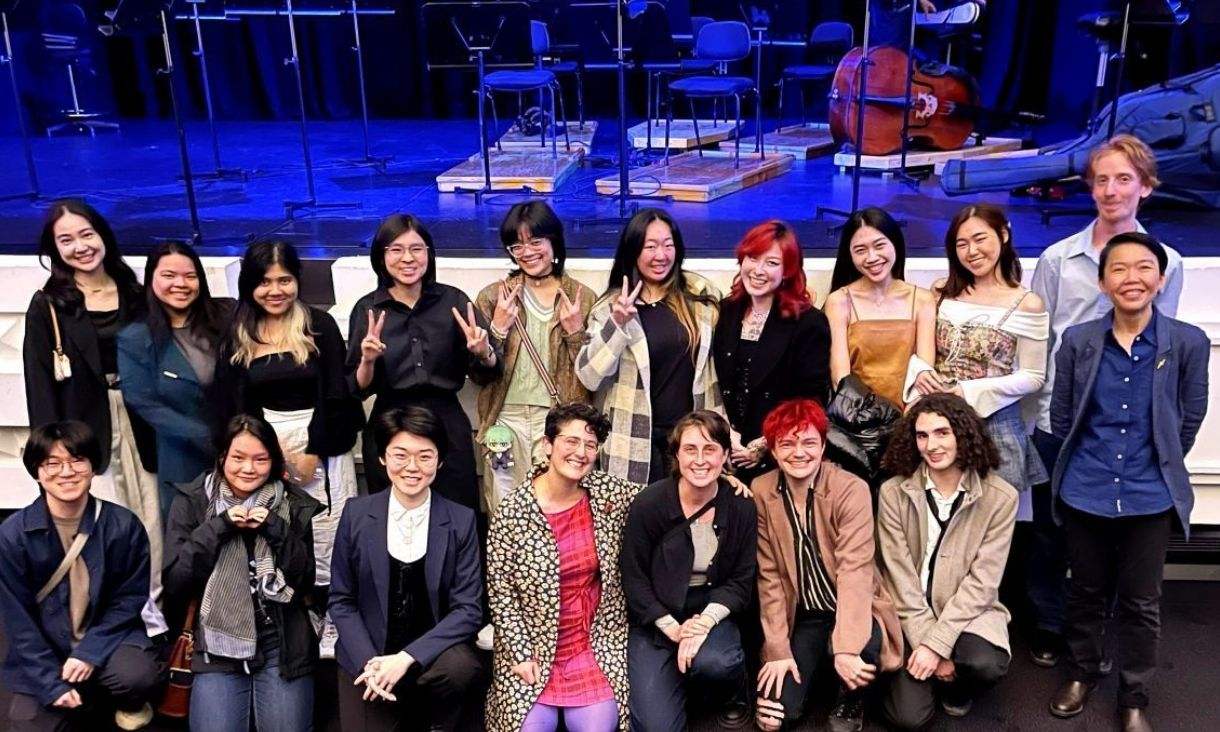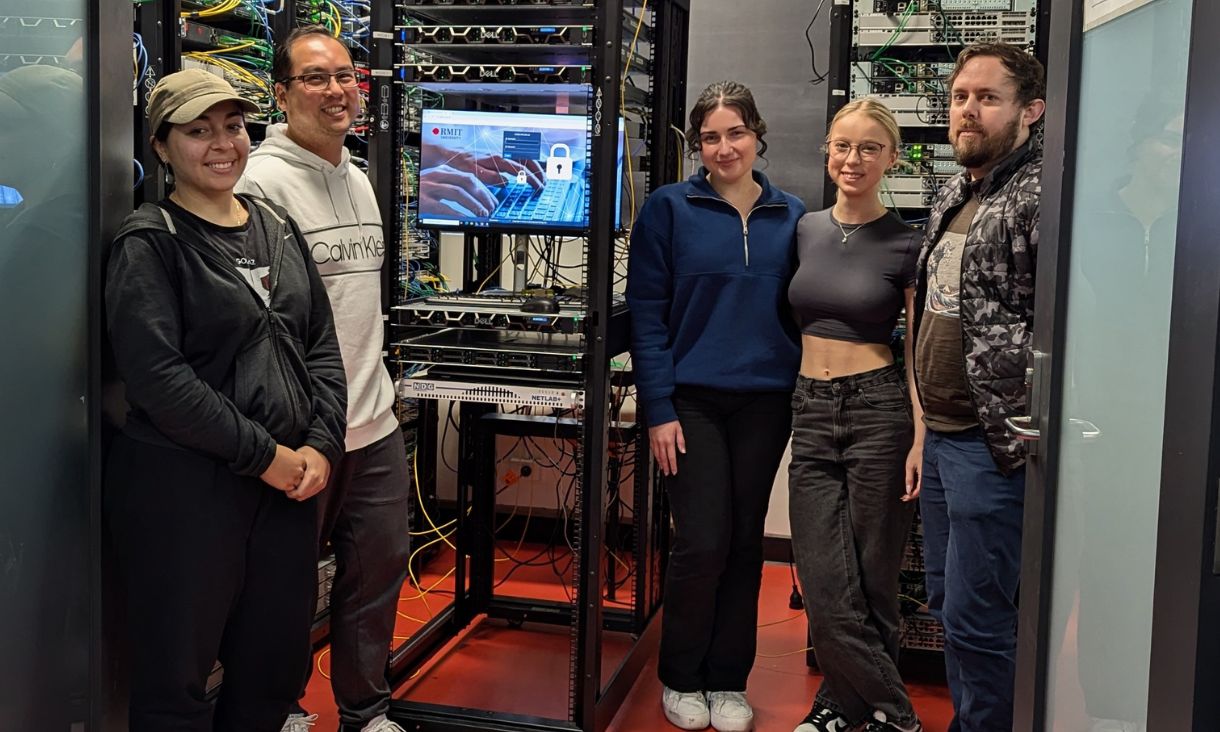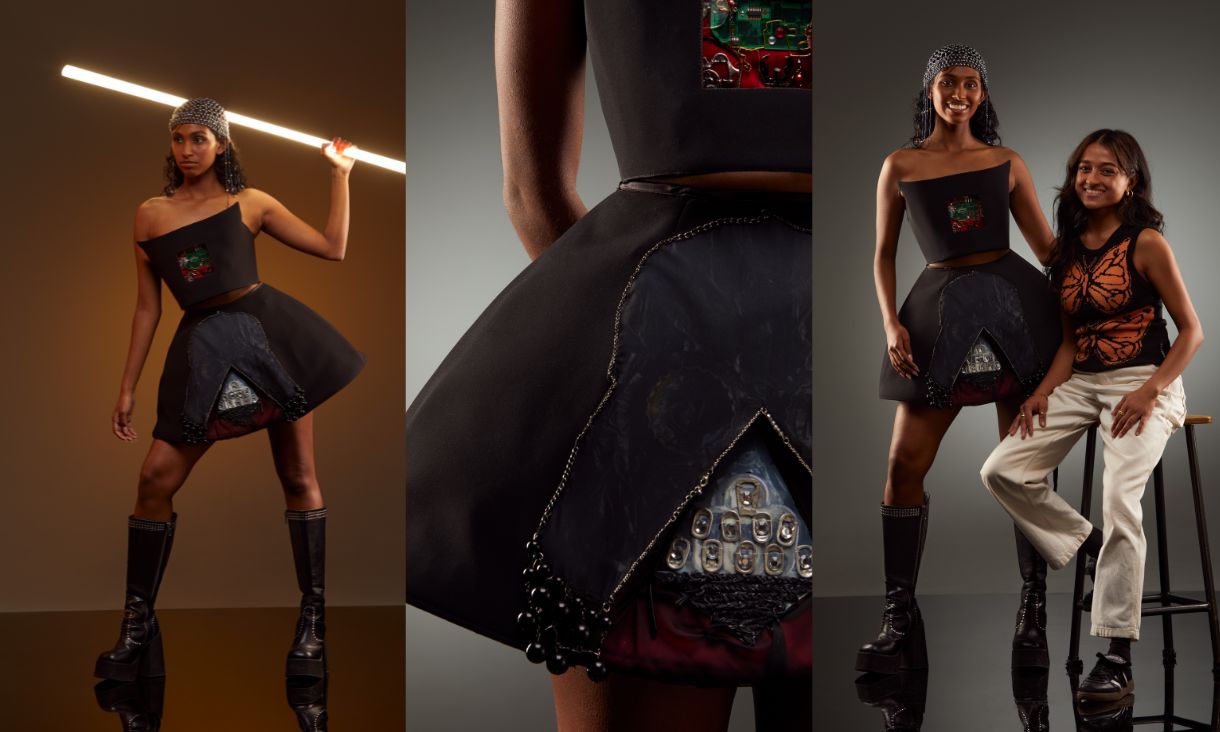You obviously embraced university life, — can you tell us about the activities you were involved in?
I pretty much jumped onto every opportunity. I thought ‘why not, I’m not going to have this opportunity as an undergraduate again.’
I joined the Student Learning Adviser Mentors (SLAMs) program, mentoring other students for the Introduction to Law subject.
I also took part in the RMIT Industry Mentoring Program, where I had someone working in the field meet with me and share their tips and knowledge.
I participated in the Future Edge program and various volunteering and activities to work on my employability skills and joined the RMIT Global Ambassador Program, which used my experience to help others wishing to take part in overseas study opportunities.
In 2018, I was Vice President of the Psyched RMIT Psychology Society, providing students with networking opportunities and an end- of-year ball to celebrate their studies.
I even helped Ngarara Willim with some modelling because they needed new photos for their advertising and also did some modelling for the campus store, for the RMIT jumpers and scarves.
What were some highlights at RMIT?
Traveling overseas as part of my course, not once, but twice, was a big highlight.
I went to Malaysia for a two-week course in comparative criminology, where we compared the criminal justice system of Malaysia and Australia. They are obviously so different — we sat in a court room and saw criminals coming in shackled.
I also went to Denmark for a month to Aarhus University with other students who came from around the world to look at youth, drugs, and alcohol, and how they are treated within society in different countries.
These experiences gave me a greater world perspective and taught me to not just think of things within an Australian context.
Networking and making friends on these trips was also fantastic and I still keep in contact with people I’ve met overseas.
I also have really good friends that I made during my studies here in Melbourne and we have that really nice support network now since graduating.
What was your recent involvement with RMIT’s Pride Day event?
It was nice to be asked to join the Pride Day activities this year, as I identify as bisexual.
I was speaking on a panel about what it was like to be helped through my studies by the Equitable Learning Services team, as well as dealing with the intersectionality involved as being someone with a chronic illness, experience of mental health challenges, and as a bisexual and Aboriginal woman.
I’d like to think that I’m an advocate for all of these aspects and a good role model for trying to live a positive life for the younger generation, to inspire others to achieve their best.
Are there people you also look to for inspiration?
I’m part of a really amazing Aboriginal women’s group in Hastings that runs out of Willum Warrain and meets every Thursday. Having your sisters and elders to look up to in that group is fantastic.
I’m also looking forward to meeting more people within the academic sphere now as a postgraduate student, including other Indigenous students, as well as Indigenous psychologists and criminologists, and other leaders in education.
I feel so lucky to have an amazing husband and really good support from his family and mine.
I am also really grateful that as part of my academic journey, I was supported by RMIT University and Graduate Women Victoria with scholarships and special awards, as well as being a national nominee for the Dreamtime Awards in 2019 for Student of the Year.
What’s your dream role or next venture?
I’m now doing a Masters by Research degree at Victoria University.
In the future, I’d love to do a PhD and get into academia or work in some sort of research capacity.
However, I think I’ll always have a community focus and be engaged in not-for-profit work, either in the field of mental health or criminology.
I didn’t get to graduate at a ceremony last year from my Bachelor of Criminology and Psychology, due to COVID-19, so I am so excited to celebrate this year at Marvel Stadium.
Congratulations to everybody who graduated this year and last year. We did it and through a worldwide pandemic, no less. Congratulations class of 2021. May your futures be bright.
Congratulations to all RMIT’s 2021 graduates! Resilient and inspiring in the face of huge obstacles, they are truly in a class of their own. RMIT is excited to welcome the newest members into our global alumni network, spanning more than 140 countries and 478,000 alumni.
Story: Kate Milkins

